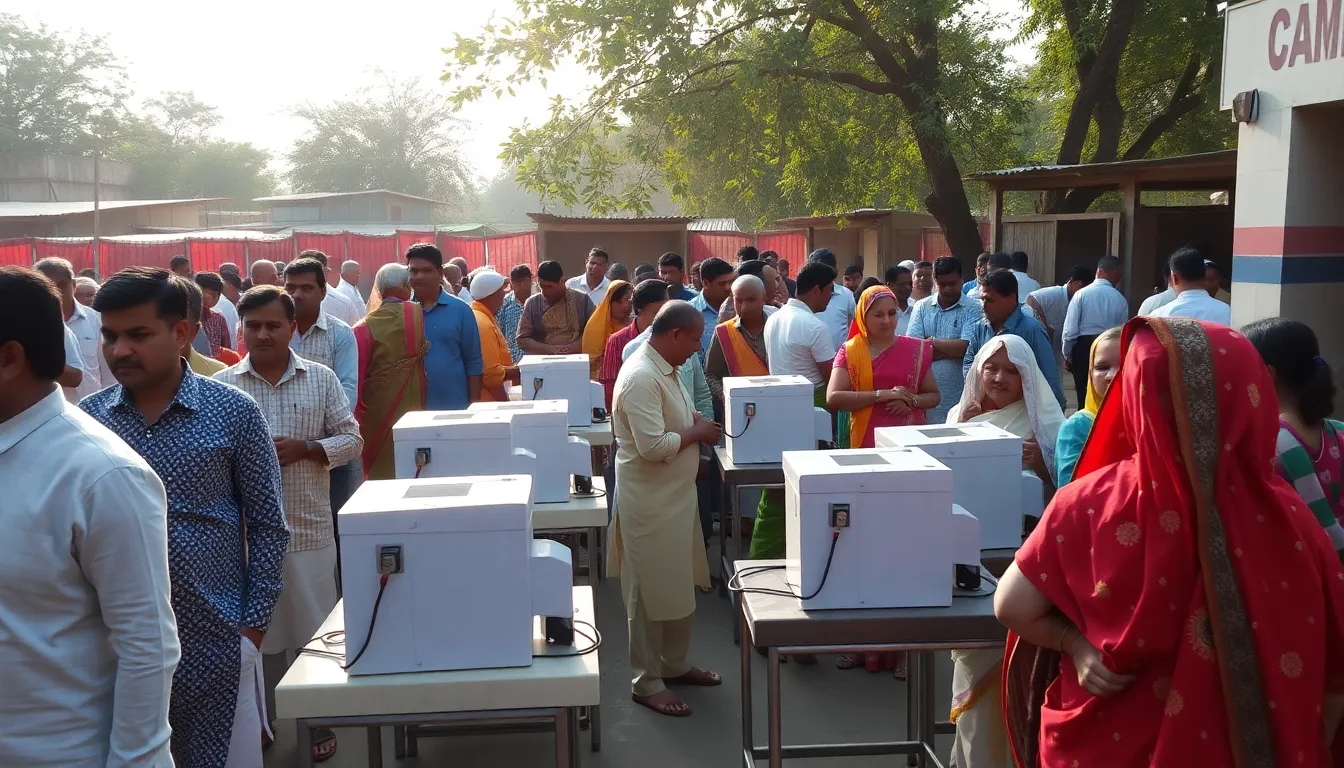On June 24, voters in Kadi (SC) and Visavadar participated in the assembly by-elections. Voting began at 7:00 AM and was conducted in a peaceful and orderly environment. According to data uploaded by presiding officers on the ECINET app, the estimated voter turnout for Visavadar was 56.89%, while Kadi (SC) saw a turnout of 57.90%. These figures are preliminary estimates.
The Election Commission (EC) implemented a new initiative requiring presiding officers to upload voting data in real-time. At the end of voting, these officials provided Form 17C to the agents of candidates present at the polling stations, detailing the actual number of votes cast.
Before voting started, a mock poll was conducted at each polling station with representatives of candidates present. For the by-elections, the EC directed a special summary revision of the electoral rolls for eligible citizens, which was published on May 5, 2025.
Political parties were provided with a copy of the updated electoral rolls, ensuring that they remained accurate. The Block Level Officers (BLO) confirmed the validity of the lists at the polling stations. In Kadi, 692 claims and objections were filed, while Visavadar saw 489. After verification, a final copy of the electoral rolls was shared with all valid political parties.
According to the Representation of the People Act, no appeals were filed with the District Magistrate or the Chief Electoral Officer. A total of 506,037 voters were registered for the elections, with 24 candidates contesting, including one woman.
A total of 588 polling stations were set up for both assembly constituencies. This increase was due to the EC’s recent decision to reduce the number of voters at each station to 1,200. All polling stations were equipped with minimum facilities to ensure a smooth voting process. For the first time, voters could deposit their mobile phones at the entrance of polling stations.
Among the polling stations, four were women-managed, one was a PWD polling station, and one was a model polling station. The first level checking of Electronic Voting Machines (EVMs) took place from May 2 to May 5, 2025, in Visavadar, and from February 24 to February 28, 2025, in Kadi. After this testing, mock polls were organised. EVM commissioning occurred in the presence of candidates’ representatives on June 12 and June 13, 2025.
During every phase of the election, mock polls were conducted on EVMs, and the results were compared with the Voter Verified Paper Audit Trail (VVPAT) slips. The allocation of EVMs to polling stations was done through a two-step randomisation process in the presence of candidates and their representatives. A list of EVMs assigned to polling stations was shared with candidates beforehand.
The Election Commission appointed general observers, police observers, and expenditure observers to oversee the election process. Training programmes included hands-on training sessions, during which higher officials conducted mock polls with randomly selected 100 test votes. At the end of the training, presiding officers ensured the full functionality of the EVMs.
From the summary revision of the electoral rolls to voting day, several meetings were held with representatives of political parties at the levels of Chief Electoral Officer (CEO), District Electoral Officer (DEO), and Electoral Registration Officer/Returning Officer (ERO/RO). Many meetings were also organised with candidates and their representatives to inform them about various election processes.
According to updated ECI regulations, candidates were allowed to set up their booths within 100 metres of the polling station entrance, benefiting voters, particularly those without voter information slips.
Postal ballots were offered to more than 172 voters aged 85 and above, as well as to disabled voters. A dedicated team conducted the voting process in the presence of the candidates’ representatives. The ECI also appointed two general observers, two police observers, and two expenditure observers to monitor the election processes.
Since the announcement of the elections on May 26, various enforcement agencies have seized goods worth ₹90.15 lakhs. By 5 PM on election day, 41 complaints were received through the C-Vigil app, with 34 of these resolved within a 100-minute timeframe.
The ECI has also digitised the process of generating index cards, replacing the traditional manual method. Following the counting, the new system will ensure rapid reporting and release of index cards through automation and data integration.


Leave a Reply